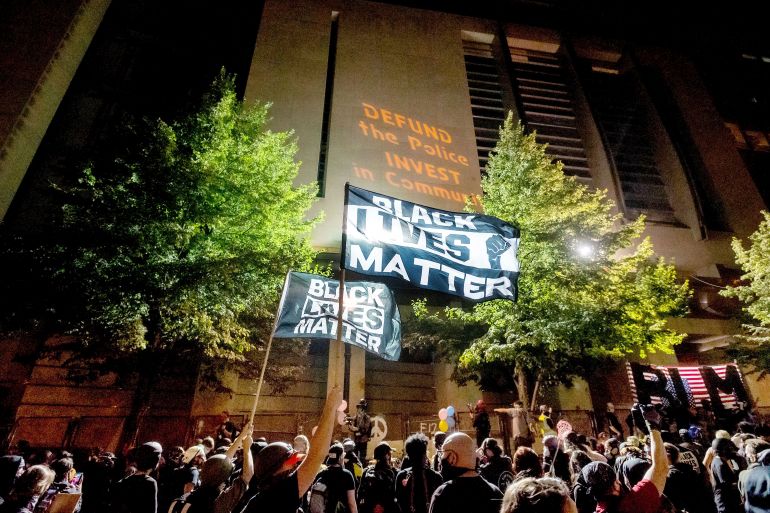The court document released on Friday shows the FBI used a special intelligence database containing foreign intelligence thousands of times while investigating US citizens — confirming a long-held concern that critics have had of the program, launched in the wake of the September 11, 2001, attacks.
FBI misused surveillance tool on Jan. 6 suspects, BLM arrestees and others
Crime victims, political donors and potential sources were targeted in digital searches that the FBI says have now been scaled back
FBI officials say they have already fixed the problems, which the agency blamed on a misunderstanding between its employees and Justice Department lawyers about how to properly use a vast database named for the legal statute that created it, Section 702 of the Foreign Intelligence Surveillance Act (FISA).
- But the failures to use the database correctly when collecting information about U.S. citizens and others may make it harder for the agency to marshal support in Congress to renew the law, which is due to expire at the end of this year. It may also create additional head winds for the FBI, which has been under attack for years by former president Donald Trump and his political supporters. House lawmakers aligned with Trump held a hearing this week trying to show that the nation’s premier law enforcement agency is biased against conservatives.
- The Foreign Intelligence Surveillance Court, which oversees Section 702, has pressured the FBI to address the problems, writing in the April 2022 opinion that was unsealed Friday that if the agency doesn’t perform better, the court will crack down and order its own changes to FBI practices.
The Section 702 database is a vast trove of electronic communications and other information that can be searched by the National Security Agency and the FBI. The FBI is authorized to search the database only when agents have reason to believe that such a search will produce information relevant to foreign intelligence purposes, or evidence of crimes.
Built in the aftermath of the Sept. 11, 2001, terrorist attacks, the database is seen by U.S. officials as one of the prize jewels of the national security apparatus. Its primary purpose is targeting foreign intelligence or terrorism information. But the sweeping nature of the information in the database has long worried civil rights advocates, who argue that the government has proved it cannot be trusted to use the system carefully.
- The court “is encouraged by the amendments to the FBI’s querying procedures,” Judge Rudolph Contreras of the Foreign Intelligence Surveillance Court wrote in the opinion, which detailed the nearly 300,000 abuses logged between 2020 and early 2021. “Nonetheless, compliance problems with the querying of Section 702 information have proven to be persistent and widespread. If they are not substantially mitigated by these recent measures, it may become necessary to consider other responses, such as substantially limiting the number of FBI personnel with access to unminimized Section 702 information.”
While House Judiciary Committee Chairman Jim Jordan (R-Ohio) has argued that the FBI has mistreated conservatives and applied a liberal bent to its investigations, the examples cited in Contreras’s opinion suggest that the bureau was multifaceted in its failure to live up to the legal standards of the courts and the Justice Department. In a written statement, Jordan said that FBI Director Christopher A. Wray “told us we can sleep well at night because of the FBI’s so-called FISA reforms. But it just keeps getting worse.”
- In June 2020, the FBI searched for digital data and communications of 133 people arrested “in connection with civil unrest and protests between approximately May 30, and June 18, 2020,” a time when demonstrations erupted across the country over Floyd’s death under the knee of a Minneapolis police officer.
That search was done, officials said, to see if there was counterterrorism information about those individuals. When questioned about the searches later, FBI officials said it was reasonable for agents to think the searches would return foreign intelligence.
- The parts of the court papers describing that effort have significant redactions, making it unclear why the FBI developed its theory.
- The filing also doesn’t make clear how many of the individuals whose information was sought from the database were arrested while protesting police conduct, how many might have been counterprotesters or what, if anything, was done with the information gathered.
Around that same time, an FBI analyst conducted 656 queries of FISA information, apparently because the bureau was considering whether to use people as informants and wanted to check for any derogatory information, the court filing says. The FBI did not have any reason to believe that agents would find such information, officials said."
FBI misused database for Jan 6 suspects, racial justice protests
A redacted report from an oversight court says the agency regularly accessed a database meant for foreign investigations.





No comments:
Post a Comment